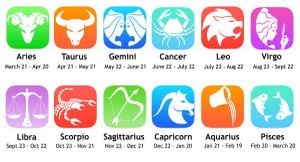Melbourne Storm, one of Australia’s premier rugby league clubs, is embarking on a controversial shift concerning its Welcome to Country ceremonies, which have played a significant role in acknowledging Indigenous culture. The club announced it would no longer hold regular Welcome to Country ceremonies throughout the season, opting instead to limit this practice to culturally significant events, including the NRL’s Indigenous Round.
According to reports from News Corp, the decision reflects the club’s desire to let its actions speak louder than words. A spokesperson stated, “We’re really eager to let our actions (rather than words) reflect what we stand for as a club in the community.” This departure from the long-standing tradition has generated heated discussions among fans and commentators alike.
The Welcome to Country ceremony has been at the center of cultural debates, especially following the Voice referendum, which brought the topic of Aboriginal rights and recognition to national attention. Cultural educator Brendan Kerin recently made headlines for his remarks during another sporting event’s ceremony, asserting, “It’s always a welcome to the lands you’ve gathered on,” dismissing the idea of it being merely about welcoming non-Indigenous Australians.
Kerin’s perspective resonates with some cultural proponents who feel the ceremony has been commercialized, distancing it from its rich historical roots. Expressing concerns, Kerin remarked, “A Welcome to Country is not for white people... it’s something we’ve been doing for 250,000 years plus BC - and the BC stands for Before Cook.” His comment signifies a call for respect and authenticity in how these customs are performed.
Responses to Melbourne Storm’s announcement have been polarizing. Some fans welcomed the move, advocating for the end of what they label divisive rituals. One supporter expressed on X, “Strong leadership decision and about time. It’s not a welcome, it’s a political accosting.” Meanwhile, another fan dubbed it “common sense,” indicating widespread division over the ceremony's relevance.
Conversely, some critics have expressed disappointment. Indigenous rapper Briggs lamented, “The cost of living means cultural recognition is just not viable... Storm could do it if they wanted.” His comments reflect broader discontent about the perceived abandonment of cultural practices in favor of more economically favorable decisions.
Historically, Welcome to Country emerged decades ago, transforming from Indigenous cultural rituals to widely recognized ceremonies. The inception of this modern adaptation is often credited to Ernie Dingo’s dance troupe during the Perth Arts Festival, which sought to address cultural recognition among diverse Australian communities.
Today, these ceremonies are commonplace during significant events, yet their significance and execution have come under scrutiny. Indigenous Senator Jacinta Nampijinpa Price has warned against the over-saturation of such ceremonies, likening them to empty gestures rather than meaningful acknowledgments. She stated, “It’s just become almost like a throwaway line. We don’t want to see all these symbolic gestures; we want to see real action.”
This sentiment has been echoed by various figures, including Triple M Radio producer Loren Barry, who questioned the necessity of the ceremonies within the environment of routine activities like pilates classes, stating, “I’m all for the Welcome to Country. But… I think, when you’ve got the same people in the classes every day, you’ve been welcomed.”
Melbourne Storm's management has reiterated its commitment to fostering cultural respect and acknowledges the divergence of opinions surrounding these ceremonies. A recent statement read: “We will continue to support First Nations community groups and organisations, as it has done for many years, delivering programs and initiatives promoting positive health, welfare, and education outcomes.”
Contrary to media reports claiming the club is abandoning the Welcome to Country tradition, officials clarified their position, stating their intention to consult with Indigenous communities on the best ways to continue honoring cultural practices respectfully and appropriately. The club also expressed plans for cultural planning reviews for the coming seasons to determine the roles these ceremonies will play moving forward.
It is worth noting the contemporary dialogues surrounding Welcome to Country rituals reflect broader societal issues relating to Indigenous rights, recognition, and the delicate balance of cultural representation within mainstream Australian life.
For now, the Melbourne Storm has committed to holding the Welcome to Country ceremony during the NRL’s Indigenous Round and other significant occasions. Nonetheless, the decision has sparked reflection on how we acknowledge and celebrate the diverse cultural heritage within Australia and whether such practices unify or divide communities.
The debate surrounding these changes at Melbourne Storm is emblematic of broader conversations about cultural ceremonies nationally and raises questions about the future of Welcome to Country traditions. It’s clear the issue of cultural acknowledgment remains complex and multifaceted, provoking varied reactions from different segments of Australian society.
Overall, Melbourne Storm's decision marks the beginning of what could be a significant cultural shift, one reflecting the changing attitudes and dynamics of Australian rugby league's engagement with Indigenous communities.



